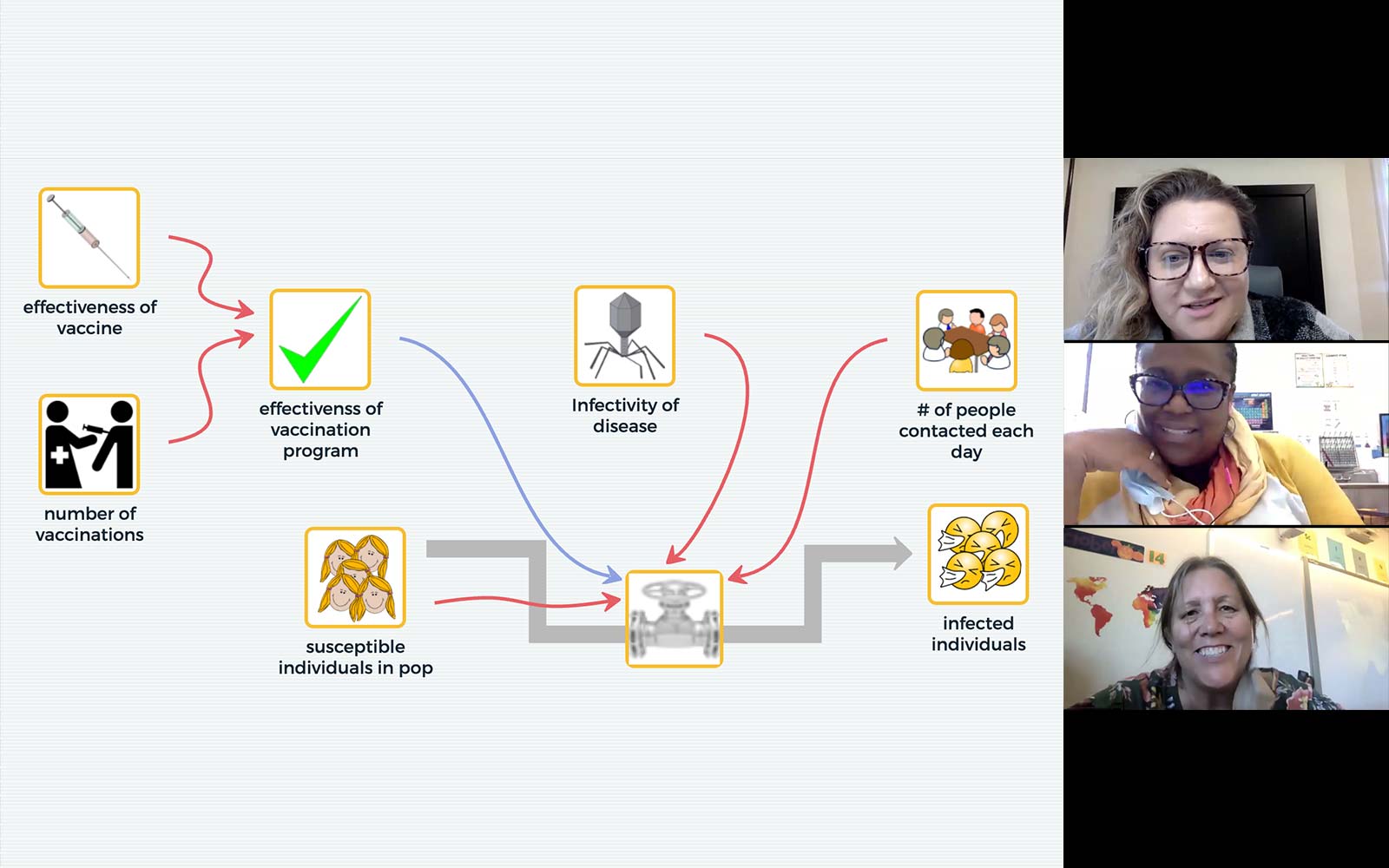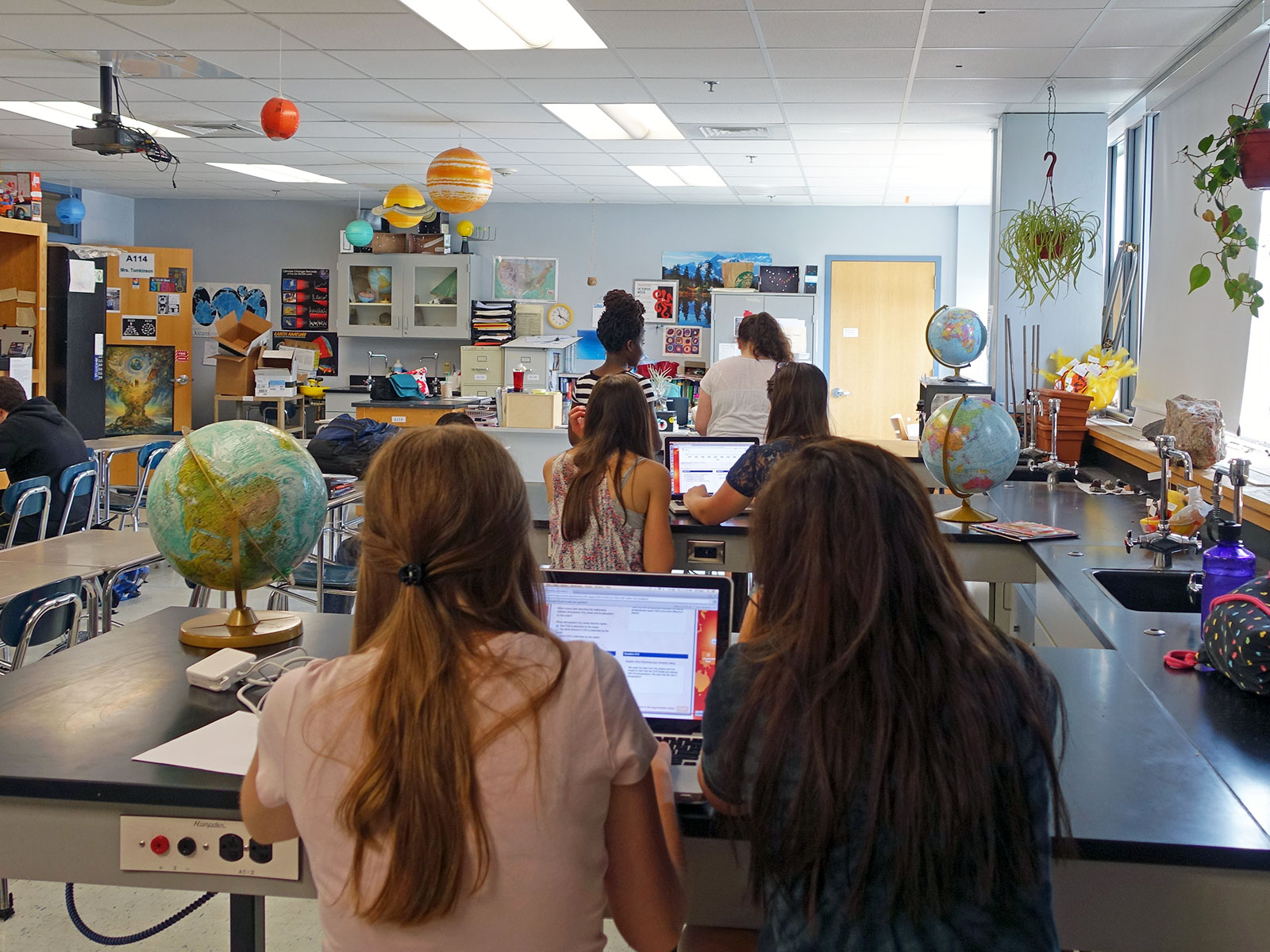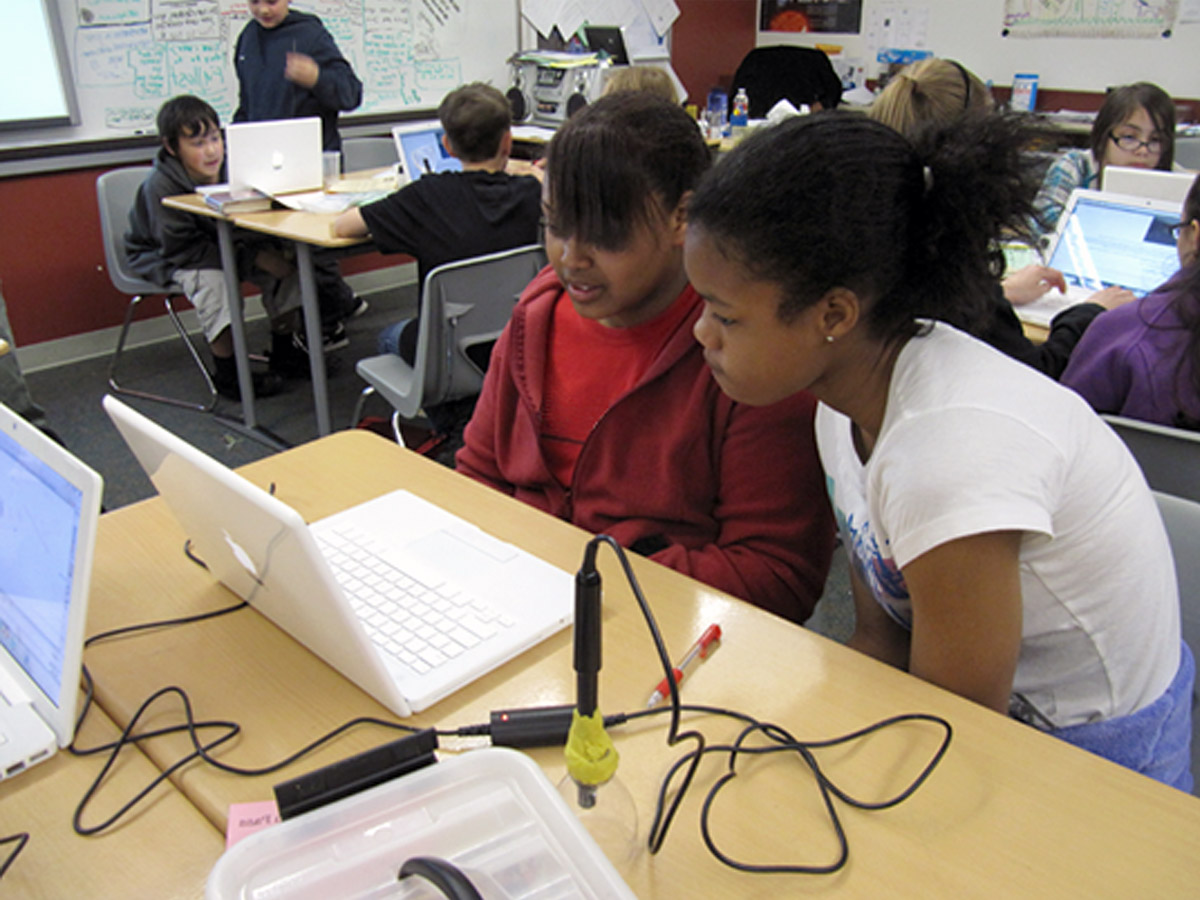Multilevel Computational Modeling
Importance
Systems thinking and modeling are essential for addressing some of our most challenging scientific and societal problems. Climate change, human health and physiology, managing the growing computational infrastructure in our interconnected world, and the planning and building of cities and communities are all examples of problems that require a systems approach. Computational thinking plays a key role in developing solutions to scientific and engineering problems, in particular ones that involve a system modeling approach.
System models simulations traditionally involve programming and/or the development of mathematical equations to define relationships between variables. While programming may be essential in solving scientific and engineering problems, designing a model or a plan for data analysis involves computational thinking, which should be accessible to all. Having students engage in system modeling provides a powerful platform for using computational thinking, one of the eight key scientific and engineering practices in the Next Generation Science Standards.
We’re collaborating with Michigan State University to research and disseminate technological, curricular, and pedagogical scaffolds needed to support students and teachers in developing computational thinking in the context of system modeling and utilizing a system modeling approach for exploring phenomena across multiple STEM disciplines.
Multilevel Computational Modeling is extending the modeling capabilities of SageModeler to support systems dynamics modeling and add the ability to tag models with characteristic features (e.g., linear vs. branched, with feedback loops, etc.) in order to facilitate class discussions around modeling and computational thinking principles. We’re creating curriculum units in which students have several opportunities to engage in building, testing, sharing, evaluating, and revising models of increasing complexity. We’re also developing teacher materials and a professional learning program that includes a professional learning community around system modeling and computational thinking.
Project research focuses on how students’ modeling practice and computational thinking develops in the context of creating their own system models and how to support teachers in effectively utilizing a system model-based approach to teaching and learning.
Research
Research on student learning and teacher practice is guided by the following questions:
- How do scientific explanations of phenomena evolve as students engage in computational thinking in the context of system modeling?
- In what ways can curricular materials and technological tools best scaffold the development of students’ computational thinking and system modeling practice?
- What pedagogical strategies are effective for scaffolding students in computational thinking through modeling complex systems?
Publications
- Roderick, S., Damelin, D., & Stephens, A. L. (2024). Students’ systems modeling: A classroom of the future. In L. D. English & T. Lehmann (Eds.). Ways of thinking in STEM-based problem solving: Teaching and learning in a new era. Routledge. https://doi.org/10.4324/9781003404989
- Damelin, D. (2023). Critical tools for solving today’s complex problems. @Concord, 27(2), 10–11.
- Eidin, E., Bowers, J., Damelin, D., & Krajcik, J. (2023). The effect of using different computational system modeling approaches on applying systems thinking. Frontiers in Education. 8. https://doi.org/10.3389/feduc.2023.1173792
- Eidin, E., Bielik, T., Touitou, I., Bowers, J., McIntyre, C., Damelin, D., & Krajcik, J. (2023). Thinking in terms of change over time: Opportunities and challenges of using system dynamics models. Journal of Science Education and Technology. https://doi.org/10.1007/s10956-023-10047-y
- Bowers, J., Eidin, E., Stephens, L., & Brennan, L. (2023). Examining student testing and debugging within a computational systems modeling context. Journal of Science Education and Technology. 32, 607–628. https://doi.org/10.1007/s10956-023-10049-w
- Stephens, A. L., Roderick, S., Shin, N., & Damelin, D. (2023). Students do not always mean what we think they mean: A questioning strategy to elicit the reasoning behind unexpected causal patterns in student system models. International Journal of Science and Mathematics Education. 21, 1591–1614. https://doi.org/10.1007/s10763-022-10308-z
- Shin, N., Bowers, J., Roderick, S., McIntyre, C., Stephens, A. L., Eidin, E., Krajcik, J., & Damelin, D. (2022). A framework for supporting systems thinking and computational thinking through constructing models. Instructional Science. 50, 933–960. https://doi.org/10.1007/s11251-022-09590-9
- Damelin, D. (2022). Under the hood: Characterizing systems model structure. @Concord, 26(1), 14.
- Bowers, J., Damelin, D., Eidin, E., & McIntyre, C. (2022). Keeping cool with SageModeler: Engaging students in systems thinking and computational thinking through modeling. The Science Teacher, 89(4), 18–25.
- Bielik, T., Stephens, L., McIntyre, C., Damelin, D., & Krajcik, J. S. (2021). Supporting student system modelling practice through curriculum and technology design. Journal of Science Education and Technology. 31, 217–231. https://doi.org/10.1007/s10956-021-09943-y
- Damelin, D., & Roderick, S. (2021). SageModeler offers two system modeling approaches. @Concord, 25(2), 12–13.
- Damelin, D., Stephens, L., & Shin, N. (2019). Engaging in computational thinking through system modeling. @Concord, 23(2), 4-6.
Blog Posts
Learn more about the Multilevel Computational Modeling project at the Concord Consortium blog.
- Research on system modeling for classroom use
- What system model structure can teach us about model behavior
- Class dashboard shows system model structures
Activities
View, launch, and assign activities developed by this project at the STEM Resource Finder.







